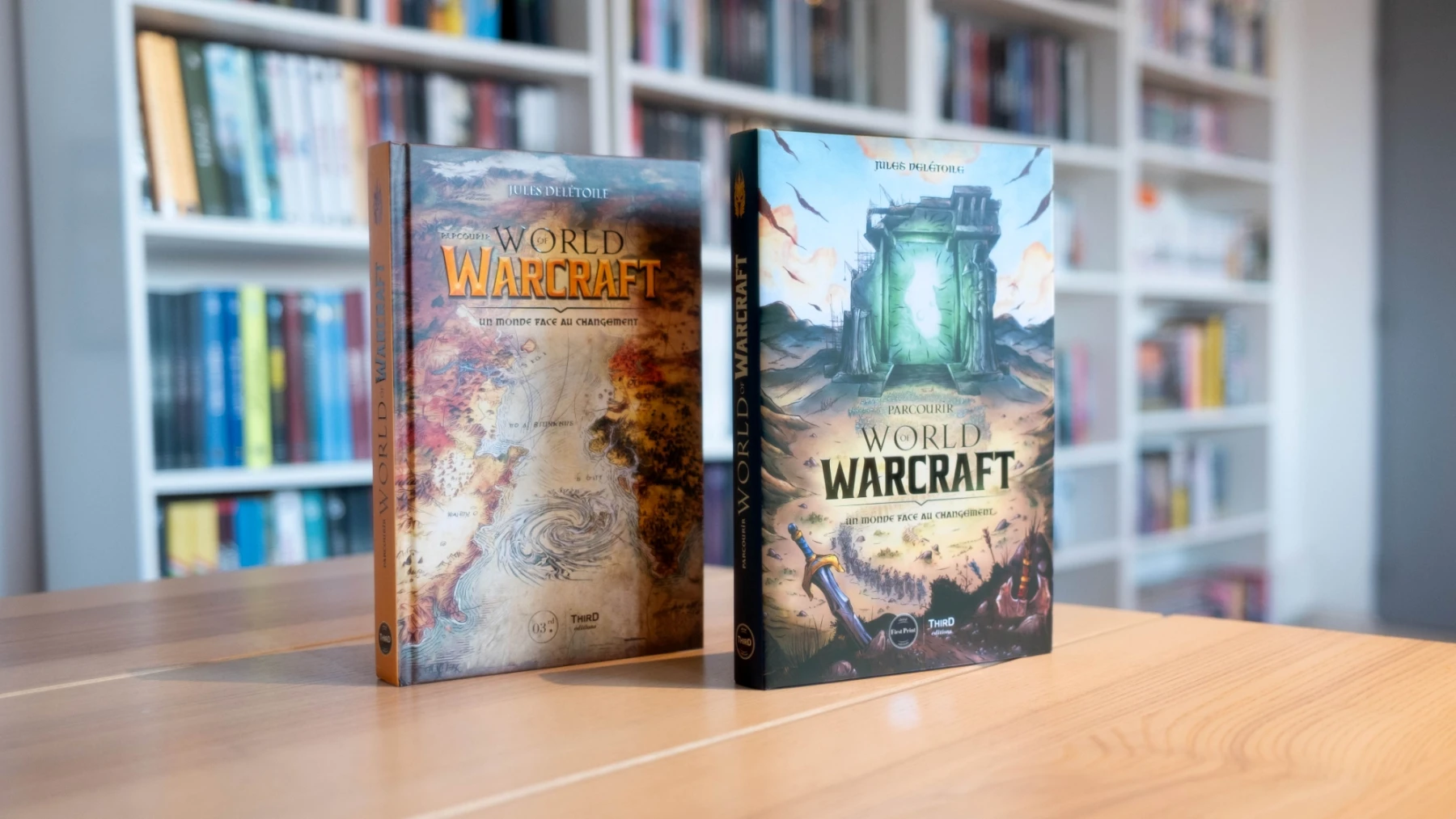This review is produced using a work sent by Third Editions
Having shaken up the video game landscape since its release in 2004 and gone far beyond the simple status of a game, World of Warcraft continues, twenty years later, to fascinate players and observers. Faced with this longevity and the game’s ability to span the ages, Jules Delétoile offers, at Third Éditionsa work which seeks to dissect this phenomenon through a singular prism: that of the constant and unavoidable evolution of a “world facing change”.
An analysis focused on change
From the first pages, the tone is set. The author does not seek to coldly retrace the chronology of the cult MMORPG, but to read the ruptures and continuities, whether technical, community or narrative. Reducing WoW to a simple “game” seems as futile as reducing the Beatles to a pop group. Delstar thus questions what Azeroth truly represents for generations of aficionados. The upheavals brought by the extensions, the appropriation of the game by its community, the emergence of a complete cultural ecosystem are the subject of thematic chapters addressing both the lore, technical developments, competitive and social practices.

A book accessible to veterans and novices alike
If the WoW epic can impress with its scale, the author manages to clearly popularize the functioning of a living and changing universe, where each expansion redistributes the cards. Newbies will find the keys to understanding how and why this title has had such an impact on people, while veterans will discover a host of anecdotes on the design, balancing and reception of major periods of the game. The emphasis is on pivotal moments, such as the launch of The Burning Crusade, the controversies around the changes introduced with Cataclysm or even the e-sport revolution.
A sensitive and reflective approach
Far from a purely historical study, the book testifies to a sincere attachment to the world of WoW, oscillating between nostalgia for a bygone era and lucidity in the face of the necessary changes, both for the game and for its creators. Delstar thus addresses the issues of preserving an identity in a constantly evolving sector. It also gives voice to players, through feedback and debates from the community, sometimes heated, and analyzes in depth the way in which Blizzard, often criticized, had to adapt to a plural and demanding audience. He also discusses the way in which the game was, little by little, re-appropriated by its players via streaming, private servers or even world events.

A wealth of tasty anecdotes
What is perhaps most fascinating in this work are the numerous anecdotes that Jules Delétoile distills throughout the text. We learn, for example, that Blizzard could have been called Chaos, or that Warcraft was originally supposed to be a Warhammer-licensed game, the license ultimately not having been obtained. One of the most surprising concerns the very cartoonish and saturated colorimetry of the game, which would result from tests carried out on screens at maximum brightness, in studios lit even at night, so that artistic directors obtain a vivid rendering on often dark screens. There are many others to mention, but you will have to read the book to discover them.
A book to understand, or to remember
Rarely has a work on World of Warcraft offered such breathing, combining analysis and living story. Without obscuring the flaws or the controversies that have sometimes agitated the community, the book offers an honest, lucid and erudite assessment, where affection is combined with rigor. Nostalgic people will find their memories there; the curious, a communicative passion. It is, without a doubt, an ideal introduction for those wishing to understand why Azeroth, two decades later, remains unique – and why, despite the upheavals, World of Warcraft remains a world apart.

Verdict: An Open Letter to Azeroth
If we had to take away one thing from this work, it would be the sensitive dimension of an adventure that is both human and digital. Jules Delétoile signs here a work that is as informed as it is accessible, essential for any fan of the genre or explorer of contemporary video game history. A title to offer, to treat yourself, or simply to travel to measure the progress accomplished – and all that remains to be discovered.



